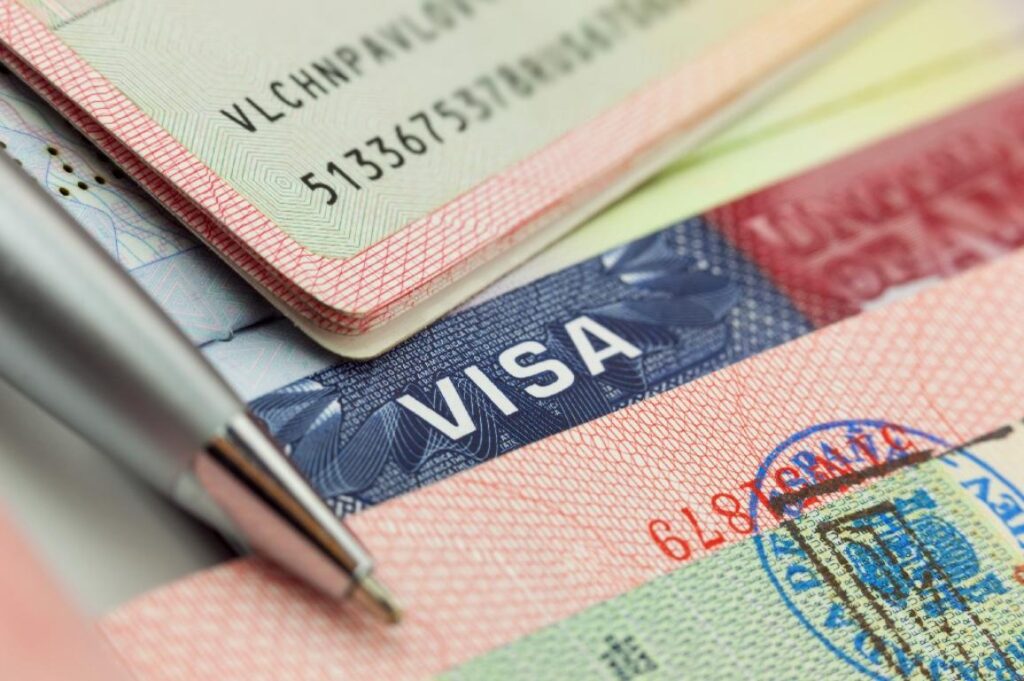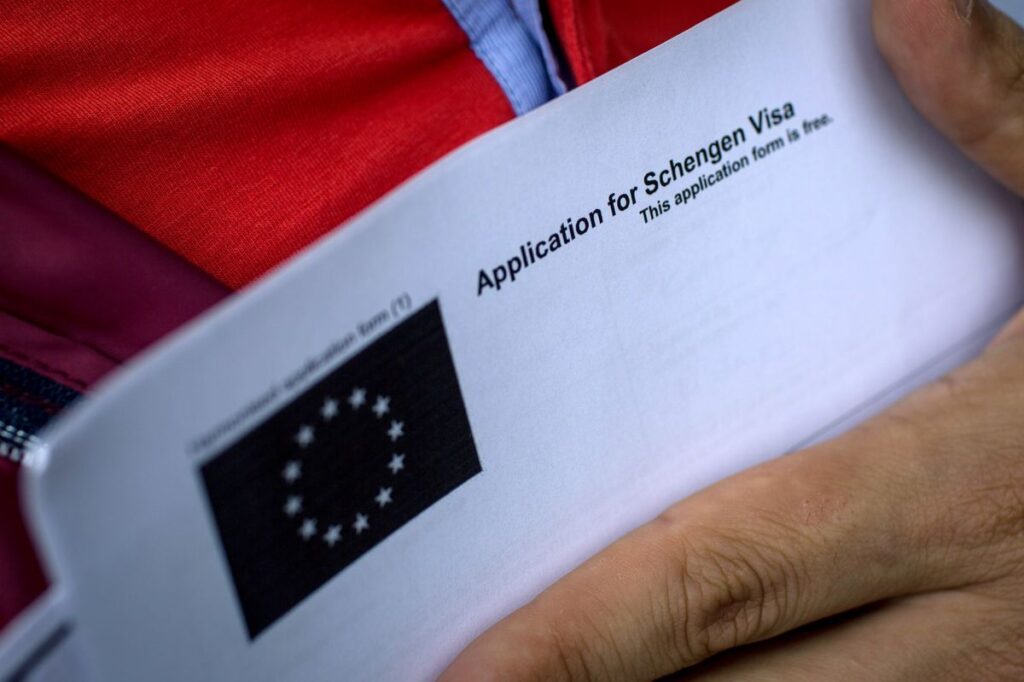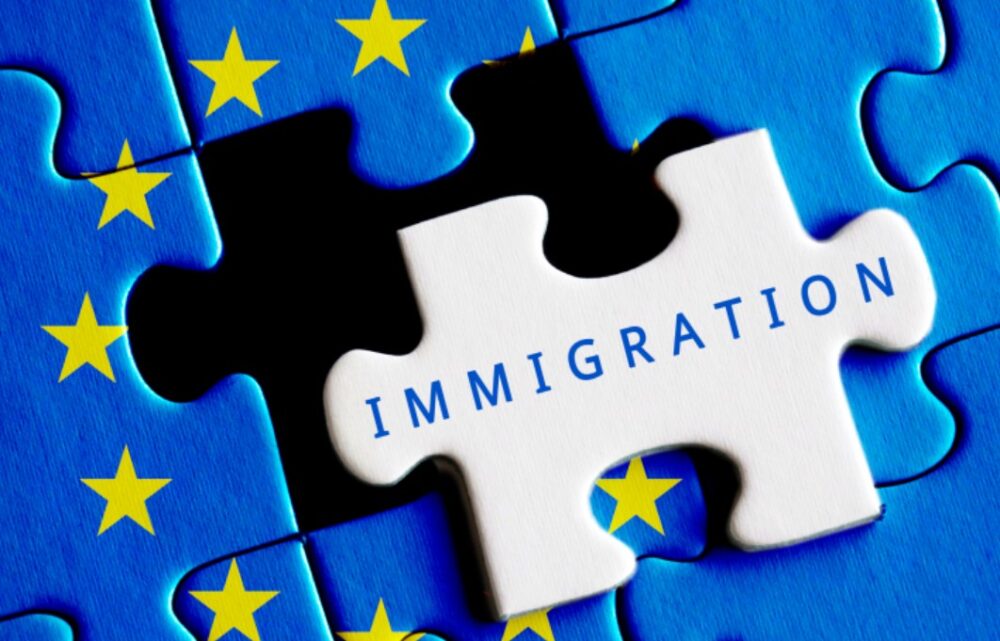Ready to pack your bags and start a new life overseas? In this blog, we’ll take you through the complete process of immigrating to Europe in 2024.
We’ll cover all the hurdles, answer any questions you have, and provide helpful advice for making the transition as smooth as possible. Let’s get started on this exciting journey!
Eligibility Requirements for Immigration to Europe

Source: economictimes.indiatimes.com
In order to be eligible for immigration, you must meet certain criteria set out by the Immigration Authorities in the EU. Generally, you must be of working age (18-65), hold a valid identity document or passport, have sufficient financial means to support yourself and dependents during your stay in the EU and sufficient health insurance.
In addition, depending on your interests, skills and qualifications, you may be subject to additional requirements set out by each individual EU country. Those interested in moving to Europe permanently may need a residence permit or visa. For some countries applicants must also prove knowledge of their official language before they can gain permanent residency status.
If you are applying for work-related reasons such as employment or self-employment then further documentation may be required depending on the position or company you are looking to work for. This can include language tests, certificates or experience-based qualifications as well as proof of availability of health insurance from an employer or other source. Finally, if applying for entry into Europe based on family ties then marriage certificates may need to be presented alongside any visa applications.
By understanding which eligibility requirements apply both generally and specifically to the destination countries that you wish to immigrate to, it is possible to determine which steps you will need to take in order to begin your journey into Europe legally with confidence that all criteria have been met and used towards gaining approval of permanent residence status.
Different Types of Visas for Immigration to Europe

Source: europa.rs
There are several different categories of visas for immigrants looking to move to Europe. These include short-term visas, long-term visas, and permanent residence/citizenship. Within this framework, there are also various options for business owners and investors, as well as refugees and those on family reunification programs.
Short-term Visas
Short-term visas cover stays that generally last from 3 months up to 5 years maximum. These include tourist visas (schengen visa) , student visas , business/employment permits or seasonal work permits. Short-term visas are usually issued for one individual country within the European Union.
Long-Term Visas
Long Term Visas offer an extended stay of over 5 years in a specified Member State of the EU. These can be issued in the form of a residence permit specific to an individual country/region or they may come with an option to travel freely across the borders of other member states without needing additional visa applications (EU Blue Card).They commonly come with additional rights and privileges such as access to certain healthcare services, access to certain academic qualifications or benefit entitlements.
Permanent Residence/Citizenship
For those looking for a more lasting settlement in Europe opt for either a permanent residence permit or full citizenship – these will allow you full access (and associated rights) throughout the European Union area.
A permanent residence permit allows you access to study, live and work in any EU country and obtain social security benefits from anywhere within its borders but does not grant full citizenship which involves becoming eligible for voting rights etc. Discrimination based on race, colour, national origin, gender or religion is illegal throughout Europe regardless of your status so everyone has equal opportunities under the law!
Application Process for Immigration to Europe

Source: bloomberg.com
The application process for immigration starts with determining which country you would like to move to and the criteria necessary for a successful application. To migrate to Europe in 2024, it will be important that you understand each country’s requirements, language ability and employment eligibility.
Depending on your nationality, the extent of your knowledge of the specific country or region may also play a part in assessing whether the relevant authorities deem you eligible for entry. A range of research is therefore required before any application is submitted. For example, if you are intending on applying as a EU citizen, then understanding the policies on citizens’ rights and freedoms under EU law is vital.
Once you have determined which country you plan on living in, it’s time to develop your visa application requirements:
- Prepare all necessary documentation that confirms your identity and shows evidence of both financial coverage and sufficient employment prospects (e.g. pay slip/contract).
- Send all application forms completed accurately with recent photographs.
- Secure enough funds to support yourself during any visa processing times (this varies by country).
- Provide details of latest qualifications so these can be verified by relevant authorities.
- Include proof that verifies your relationship status if applicable (e.g marriage documents).
Finally, once all documents are prepared, applicants need to lodge their applications with the relevant embassy or consulate and then wait for a response from the authorities regarding their decision to grant them entry into Europe. It is important that entrants remain patient throughout this process as delays are commonplace due to changing travel/tourism border restrictions during this global pandemic period.
3 Tips for Successfully Immigrating to Europe

Source: ceps.eu
Before attempting an immigration process to Europe, you should take the time to learn about the European immigration system and regulations. It is very important to understand the whole process and figure out all the required paperwork so that everything goes as smoothly as possible. Here are some tips for successfully immigrating to Europe:
1. Do your research
Researching the immigration system, policies and regulations set by each EU Member State is of paramount importance before embarking on an immigration journey. Acquiring knowledge about Europe’s visa and residency situations has become increasingly important in these times of political and economic uncertainty around the world.
2. Prepare a Dossier
When applying for EU residency or citizenship, for example Spain, it is necessary to obtain a dossier containing details about you such as your personal information, language proficiency levels, education background and qualifications, work experience, etc. Compiling this documentation can often require help from a competent lawyer or agency specialized in European immigration services.
3. Get Professional Assistance
Professional assistance makes the entire process easier since professional advisors understand all aspects of the EU laws, including those frequently-changing provisions related to travel conditions for citizens from non-EU countries; contact knowledgeable professionals who will explain everything in detail so you know exactly what’s needed should you decide -or be allowed- move into Europe under existing laws & regulations! If you don’t know where to start looking, check out more at Balcells Group’s site.
Conclusion
Finally, document everything prior to embarking on this process – do not forget that proving residency and signing contracts needs verification! By following these simple steps exactly as explained throughout this guide, you will gain access to an exciting new life full of potential in Europe!



























